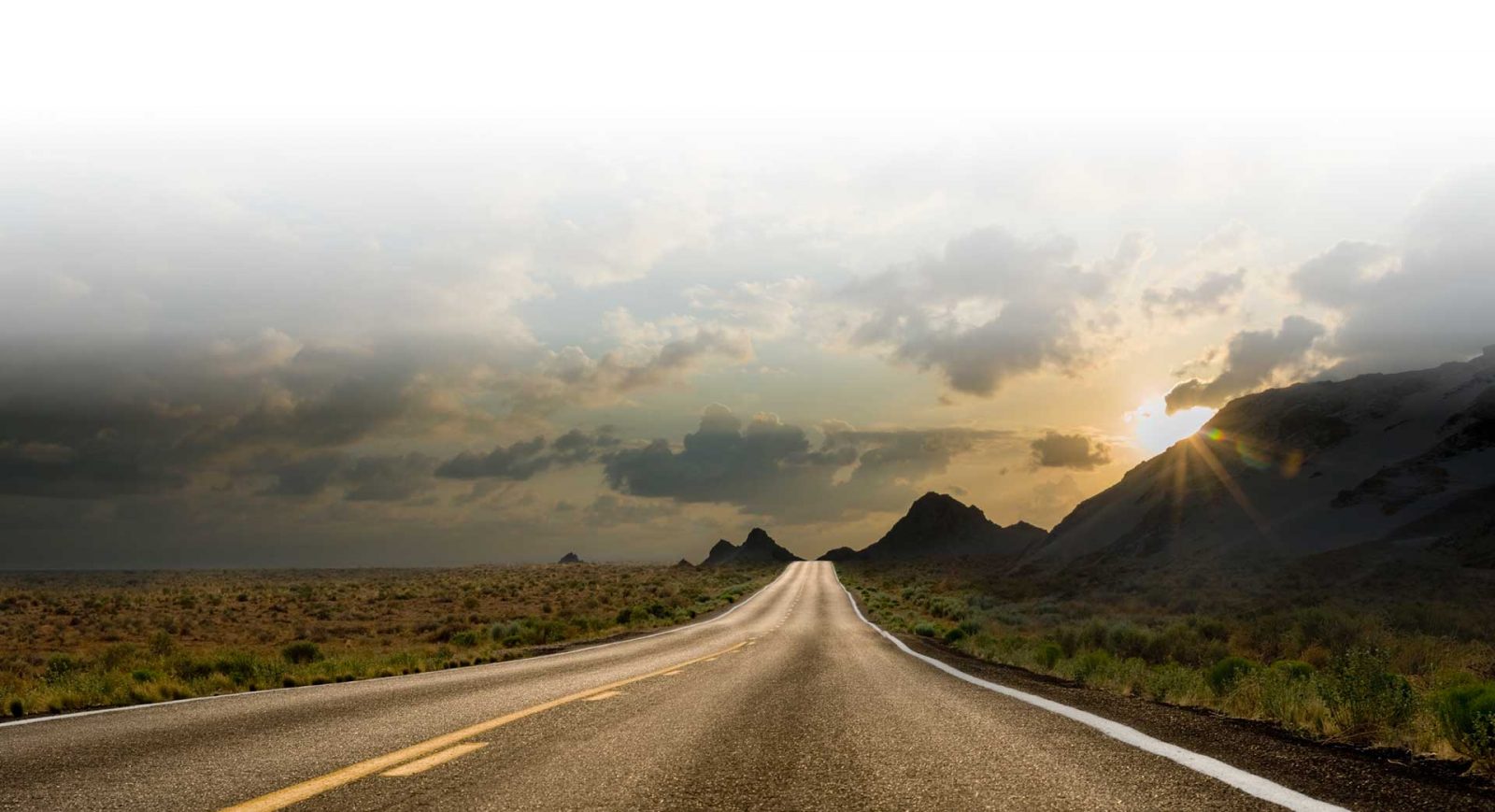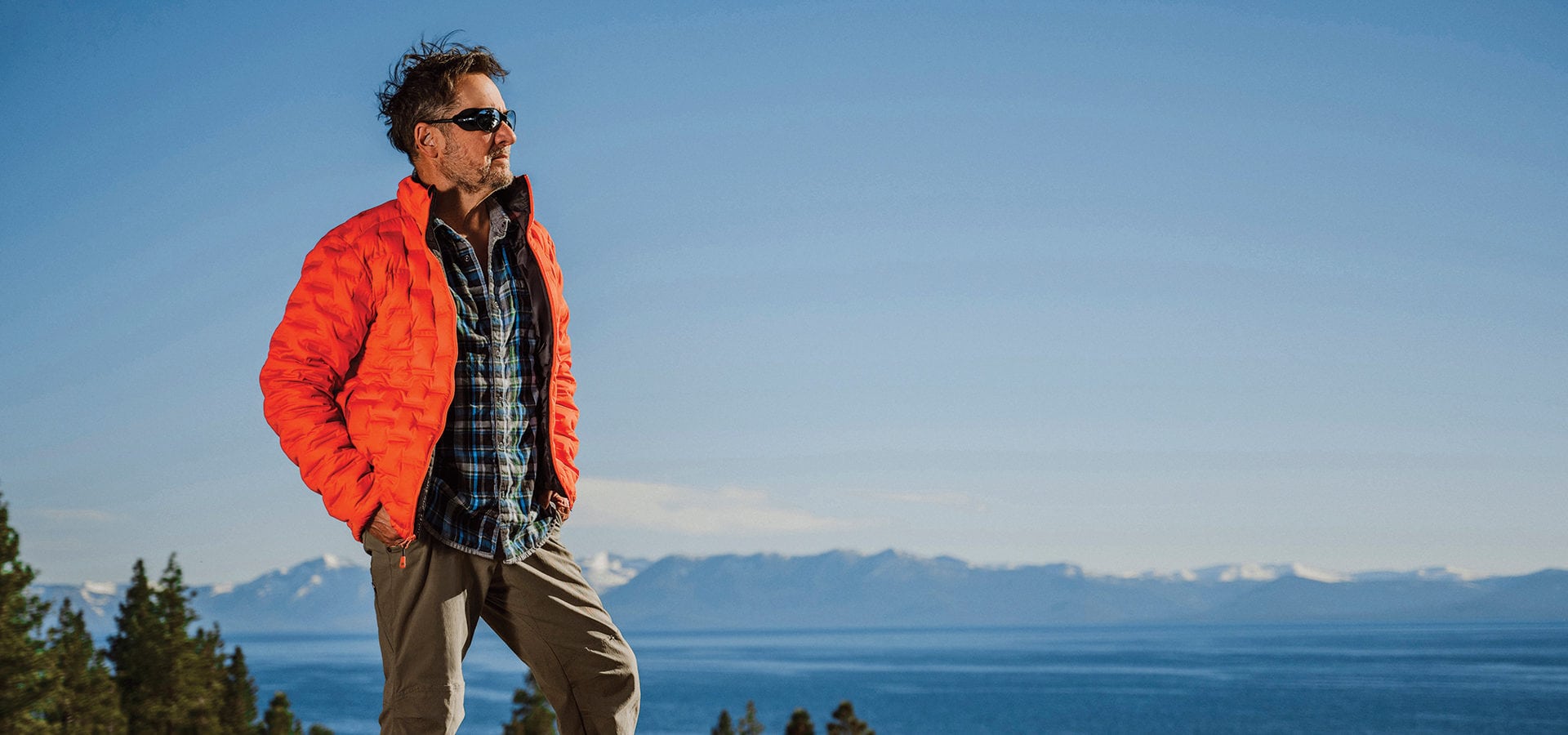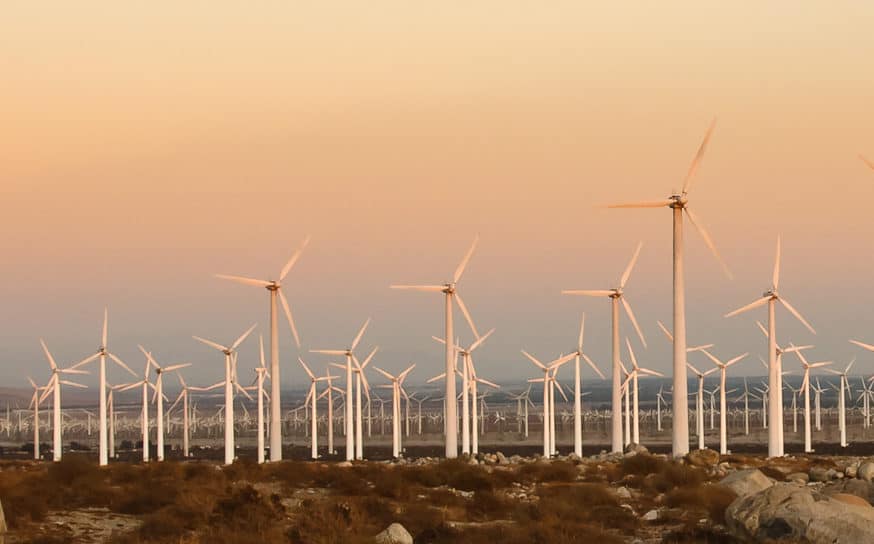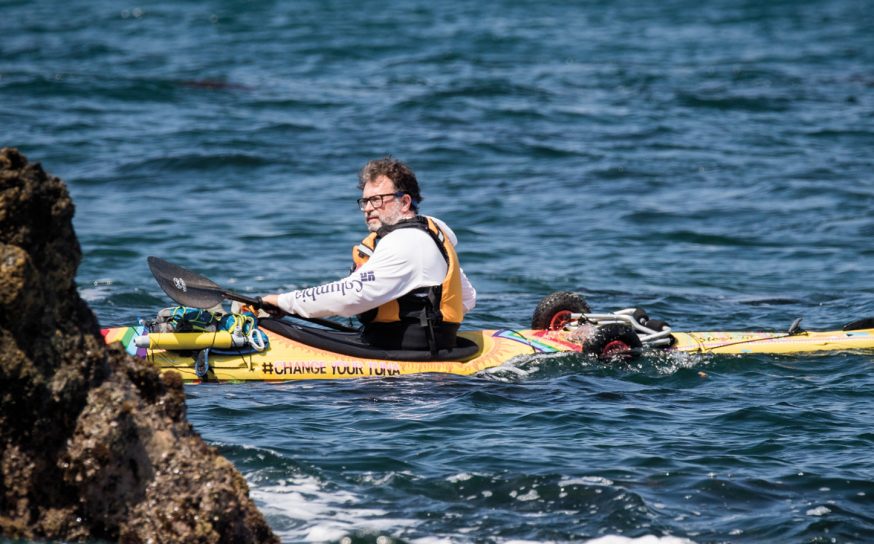A Tahoe-based Global Explorer Discovers That Lessons Learned at High Altitudes Can Become Tools of Triumph During Challenging Times
No way but up.
-
CategoryAdrenaline, Experiences, Outdoor Adventure, Tours
-
Written byCorry Cook
-
Photographed byCharleton Churchill
With more than 44 years of guiding advanced adventure explorers through brave new worlds, Tahoe’s Eddie Frank has thrived on the road less traveled—one chock-full of bumps and detours, close calls and near misses, with an occasional bullseye. Mistaken for mercenaries in the 1970s, Eddie and the group he was leading landed in jail in Benin, West Africa. Seen as a threat while leading a safari in Zambia, poachers set fires all around him to smoke him out.
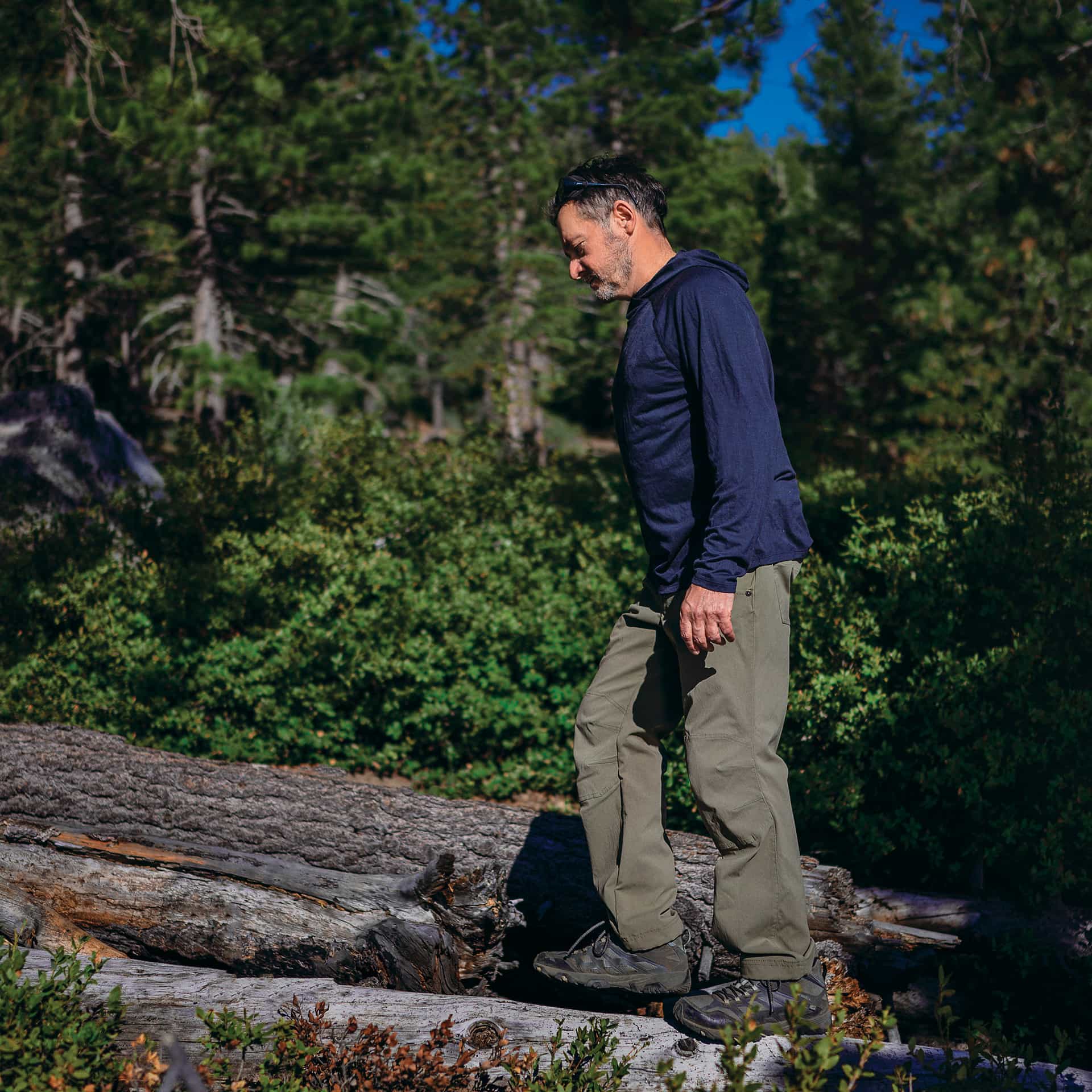
He has been stranded in a sandstorm, accidentally shot in the leg, and delivered back from the brink of death by malaria … twice. And while training the U.S. Special Forces at high altitude on Tanzania’s Mount Kilimanjaro, Eddie brought an entire elite military unit to its knees without firing a single shot.
We had planned for our meeting to take place in Tanzania more than six months ago—Eddie, a high-altitude acclimation expert and the founder of Mount Kilimanjaro adventure outfit Tusker Trail, and me, an impact and adventure journalist. At the base of Africa’s highest mountain, Eddie would introduce me to his first-class operation and climbing experience.
In the ensuing article, I would describe a firsthand account of risk and reward on Mount Kilimanjaro under his care. Together we’d inspire you to take on the epic beast of a mountain or any number of exhilarating adventures with Tusker Trail in exotic, foreign lands in the fall of 2020. Needless to say, this is not that story.
With the onset of the COVID-19 pandemic, nearly every aspect of our lives has changed in ways most did not expect six months ago. Battered and bruised but refusing to be annihilated, the adventure travel community in particular continues to rally despite unprecedented setbacks and challenges. Avid global explorers everywhere are certain that when (not if) they rebuild it, we will most certainly come. For now, foreign gems like Katavi, China’s Taklamakan Desert, Mongolia and Mount Kilimanjaro will have to wait.
On a clear afternoon in May, Eddie takes the lead on Tahoe’s Flume Trail—seeking inspiration for both of us in its rugged terrain and stunning vistas. Despite his lifelong aversion to authority, he believes in following the rules. As we stay social yet separate, I imagine his handshake … sturdy and strong and riddled with deep lines and hardened callouses.
These days, Eddie’s long career as an adventure travel pioneer on three continents could conjure up an image of a steely, hardened man with little mirth. Truth be told, he brings to mind a caged wild animal pacing back and forth behind the bars.
His eyes burn with the thrills of 10 adventure lifetimes and laser focus on the future when he will once again be truly free. Eddie Frank is not only surprisingly warm and sincere, he is swift and spry, quick-witted and keenly observant. He has to be. Lives depend on it.
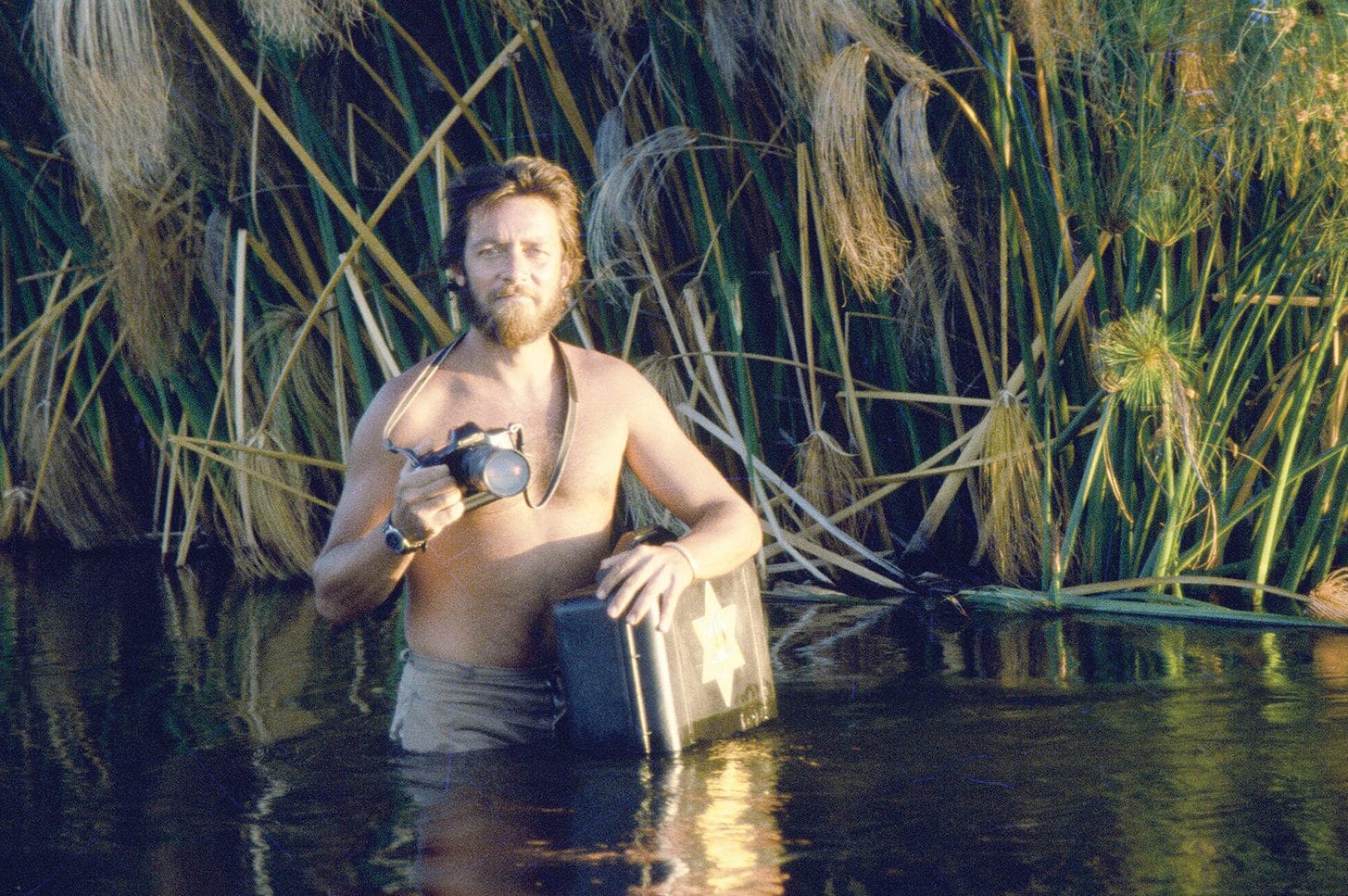
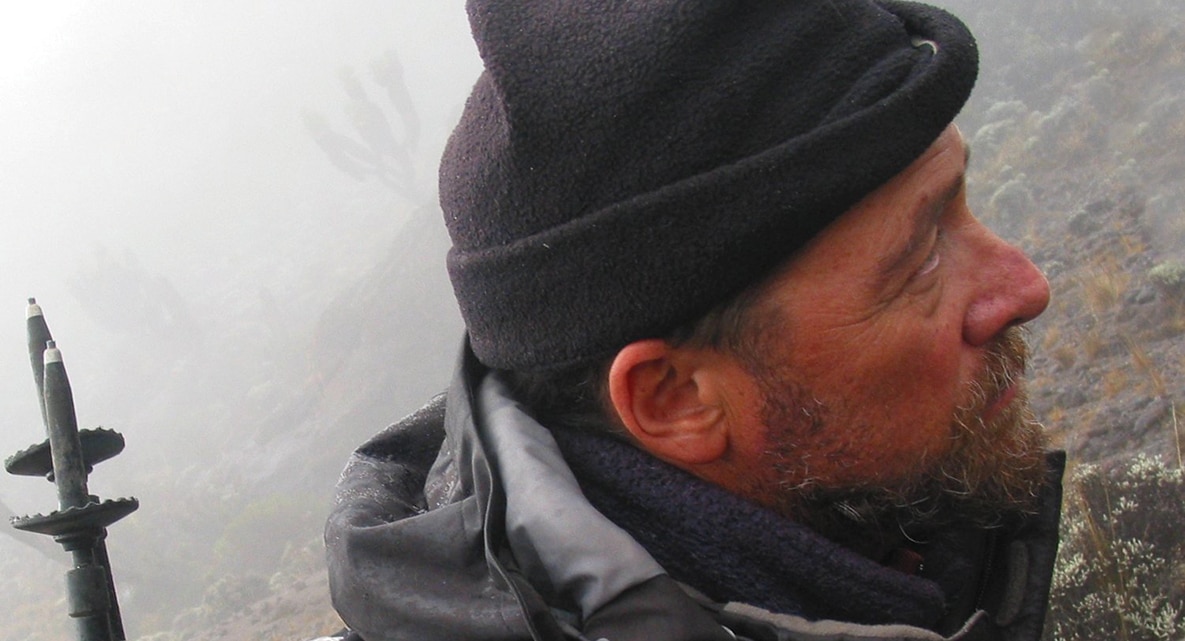
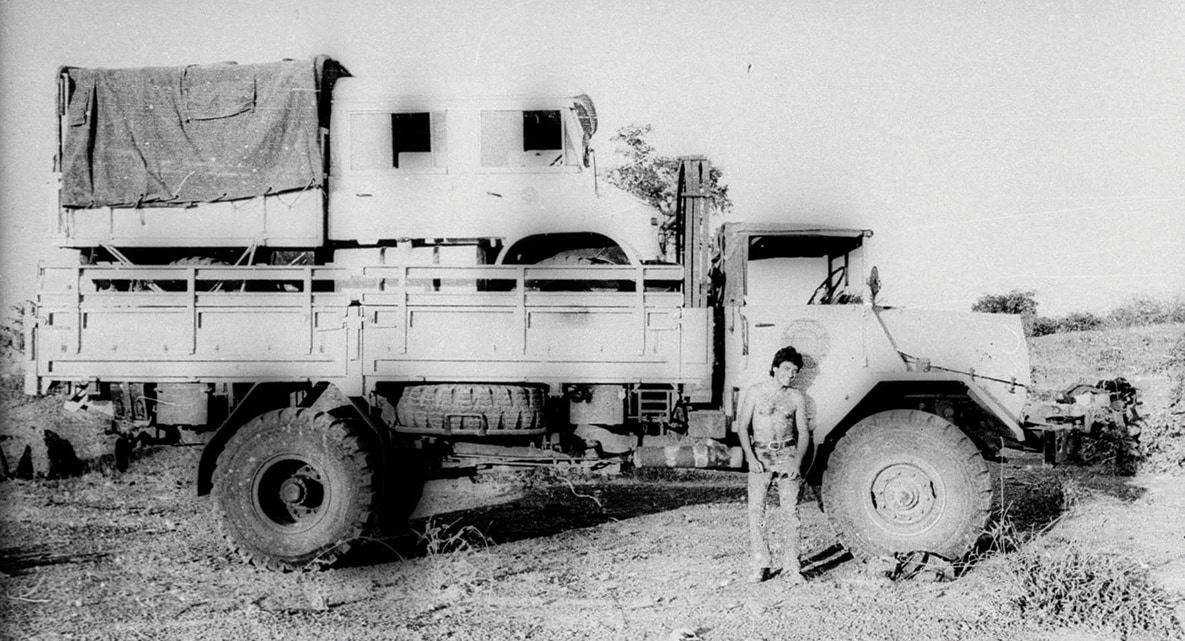
Above photos courtesy of Tusker Trail
FEAR AND FORGET ABOUT IT
High-altitude climbing like that on Mount Kilimanjaro is characterized by extreme cold, strong winds, thin air, intense solar and ultraviolet radiation, deep snow, raging thunderstorms and blizzards, heavy fog and rapidly changing weather—including severe storms. Avalanches and rockslides are not uncommon.
“At times when the world seems to grow darker, why not be reborn in the dark and be that light at the end of the tunnel?”
Just waking, eating, climbing and resting can be exhausting for even the most seasoned athlete. Although the terrain may be unattainable today, the experience done right translates well into conquering today’s challenging times.
“Fear is a really good tool. It’s not a nice feeling, but if you see it for what it is—a survival reaction—fear can be a real motivator and get your ass moving one way or the other,” says Eddie.
He doesn’t claim to be a life coach—just the guy you want around when things go from bad to worse. Whether mid-climb on Mount Kilimanjaro or during any intense expedition, he and the Tusker team ensure the sudden onset of distress and ambiguity in his clients becomes an opportunity for them to rise to the occasion and emerge stronger than ever before.
“Whether on the slope of Mount Kili or at the grocery store with a mask on, there are certain techniques to engage that can overcome anxiety,” he says. “Take deep breaths, go to that happy place mentally, engage a tactile diversion like a rock in your pocket. You can champion anything with the right tools and the right support for you as an individual.”
High-altitude climbing is not a “no guts, no glory” kind of situation. When a person travels to 12,000 feet or higher, the atmospheric changes in pressure and available oxygen cause physiological changes, which attempt to ensure that the body gets enough oxygen.
“Our climbs can be challenging,” explains Eddie. “At home it’s about preparing and building strength; then on the mountain, it’s about listening to your guide and giving yourself over to the process. It’s my responsibility to support my climbers as they pursue their goal, and to closely monitor their health and wellness along the way. I am always observant of the behaviors and attitudes of those I am with. It’s all about taking it slow and steady. Slow is never a sign of weakness.”
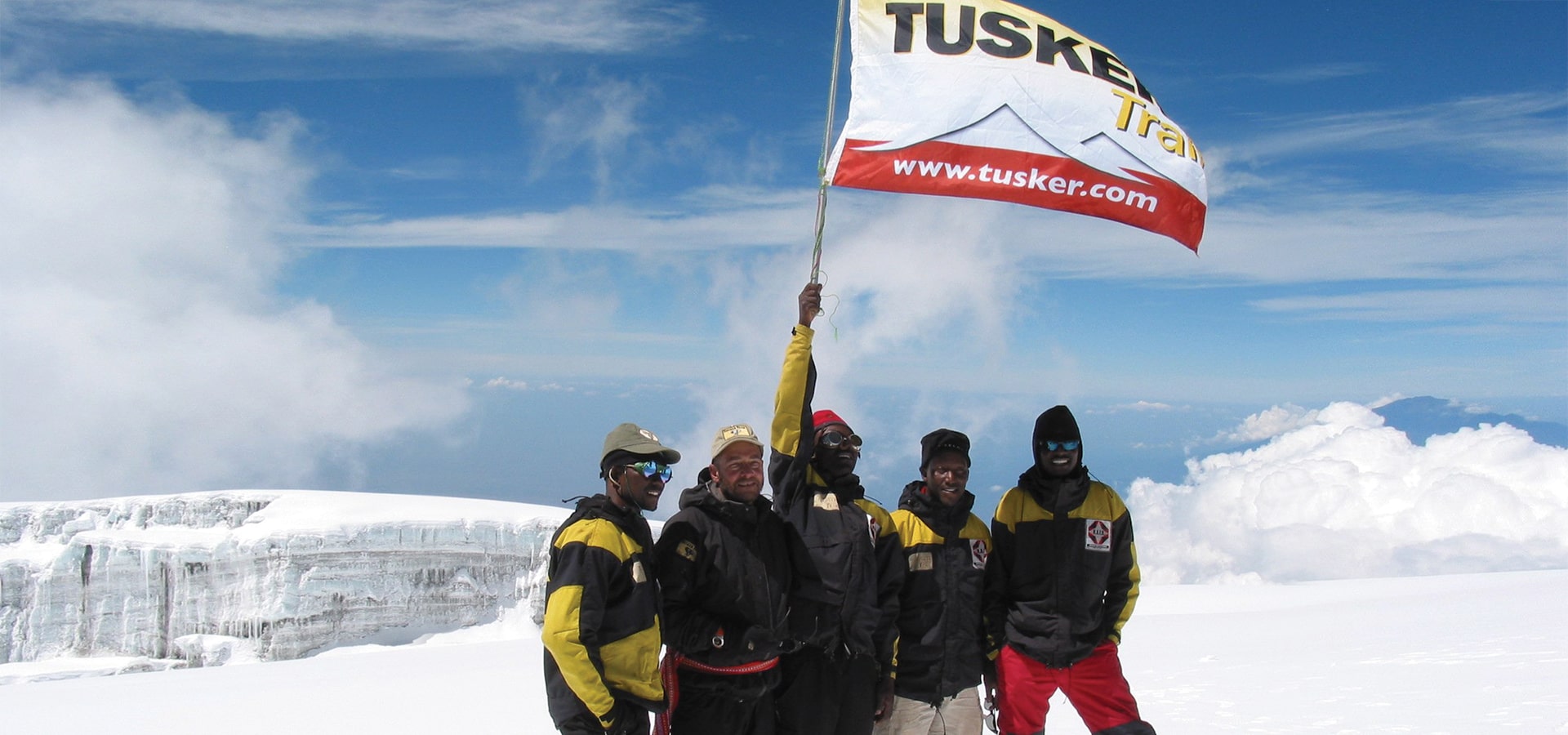
Above photo courtesy of Tusker Trail
LEAD BETTER THAN YOU
Given his experience and reputation, it’s no wonder the Defense Advanced Research Projects Agency—an arm of the United States military responsible for developing technologies used by the military—has called on Eddie to provide training for Army elite forces expected to carry out missions in high altitudes. “To succeed in that mission, or on any climb, relationship-building is key,” Eddie says. “It is my job to ensure that those in my charge trust me, my experience, my judgment, my personality, and that whatever I’m going to lead them into, I will make good decisions and they will not only survive—they will succeed.”
In a war fought in Afghanistan’s punishing high- altitude mountains, enemy #1 is the environment. Superficial wounds can turn fatal.
“I came to understand that combat in the high mountains can mean broken bones, severe lacerations, contusions and internal injuries caused by falls and falling rock,” he explains. “Frostbite, hypothermia, and respiratory and cerebral complications are constant dangers. Mental and physical abilities decrease at high altitude, and high altitude also induces personality disorders.”
Eddie continues: “Severe altitude sickness for my clients is very rare. When it comes to consulting for the military, my job has been to get elite special forces up to high altitude fast and furious. The goal is to ensure they experience the body’s physiological response during altitude sickness while with me in a safe environment.”
Leaving the base in North Carolina and using Kilimanjaro as a training ground for upcoming insertion into Afghanistan, many of America’s most elite soldiers were so sick with altitude sickness that they were stuck in their sleeping bags. “From the get-go, I make sure these special operators know I would never put them in a truly life-threatening situation. Training the elite—those younger, faster, stronger and oftentimes smarter than me—has always helped me keep my edge,” shares Eddie. “The U.S. military breeds the most incredible human beings a person can meet.”
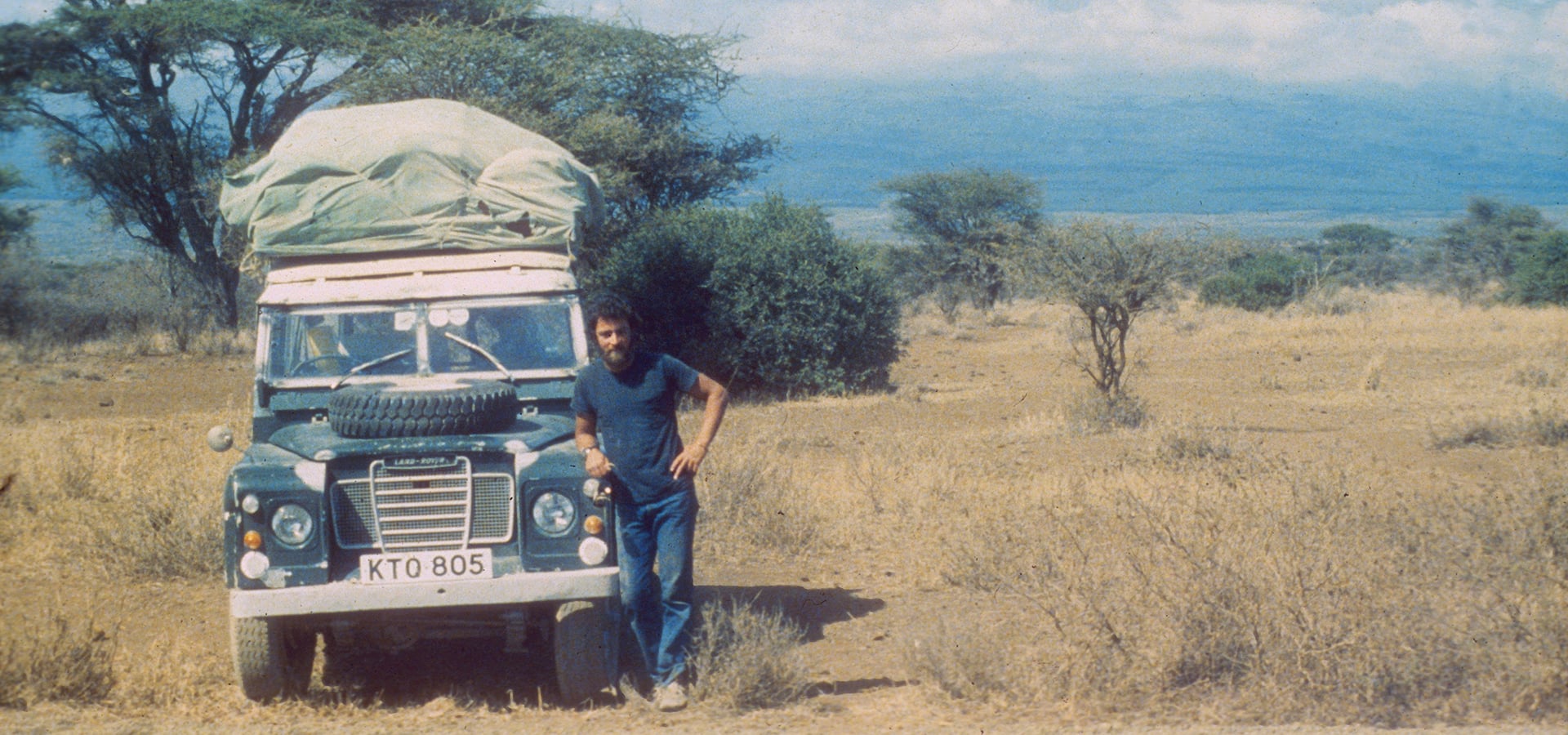
Above photo courtesy of Tusker Trail
GIVE UNTIL IT HURTS
When Eddie was a child growing up in the African bush, Tusker Trail’s founding guide dreamed of outfitting a Land Rover and driving it on an expedition across the African continent. The son of an American orphan from Cleveland and a classically trained Shakespearean actress from South Africa, Eddie remembers his childhood fondly.
“Our days were fueled by tough love while exploring the bush with my dad and brother, and our nights full of creative energy and excellence watching mom perform the classics from the wings backstage,” he says. “We were lucky enough to grow up with support for our outdoor, rugged and physical side to our lives as well as the artistic and community-driven spirit in our family.”
At the age of 23, he was having a beer with some friends at the local pub when the topic of the trans-Africa expedition came up. His friends bet him he would never do the trip. That was the spark. The dare. A year later Eddie found himself in the Sahara Desert, leading what was to be his first of many expeditions across Africa with a dozen adventurers on board.
On that first trip, the jolt of excitement, the group camaraderie and the passion for discovery that he experienced hit a nerve that was difficult for him to ignore. His life had begun, and Tusker Trail was born.
The next 44 years found Eddie leading expeditions and safaris across Africa—exploring the mountains, deserts, jungles, savannahs and rivers that he found in the atlas given to him as a child by his grandfather. During those years as he journeyed through Africa, he found himself exhilarated by a particular type of adventure: trekking. He learned that by exploring on foot, he was able to slow his pace and engage the continent face-to-face—and on its own terms.
Today, if you are anyone who is anyone in adventure, you know Eddie Frank. On Mount Kilimanjaro, Eddie’s outfit Tusker Trail has a consistent reputation for having the best guides, equipment and training. He employs diverse, highly functioning, dedicated staff members in the United States and Tanzania. And he’s aligned himself and his climbs with numerous charitable causes.
So why do more than 50,000 tourists from more than 30 countries climb Mount Kilimanjaro each year? Perhaps as renowned climber and author Jon Krakauer once said, “Most climbers aren’t in fact deranged; they’re just infected with a particularly violent strain of the human condition.”
For Tusker Trail and many of its clients from around the globe, the primary “infection” is giving and Mount Kilimanjaro is a means to an end. To date, Tusker Trail has led 77 charity fundraising climbs, raising more than $13 million for 55 international charitable organizations.
“It was remarkably successful and solidified, this fusion of my passions for adventure outdoors, climbing and philanthropy,” shares Eddie. “It has stolen my heart in many ways. In fact, I met my wife, Amy—a formidable mountaineer, guide and emergency medical technician in her own right—on my third fundraising climb for the Canadian Breast Cancer Foundation.”
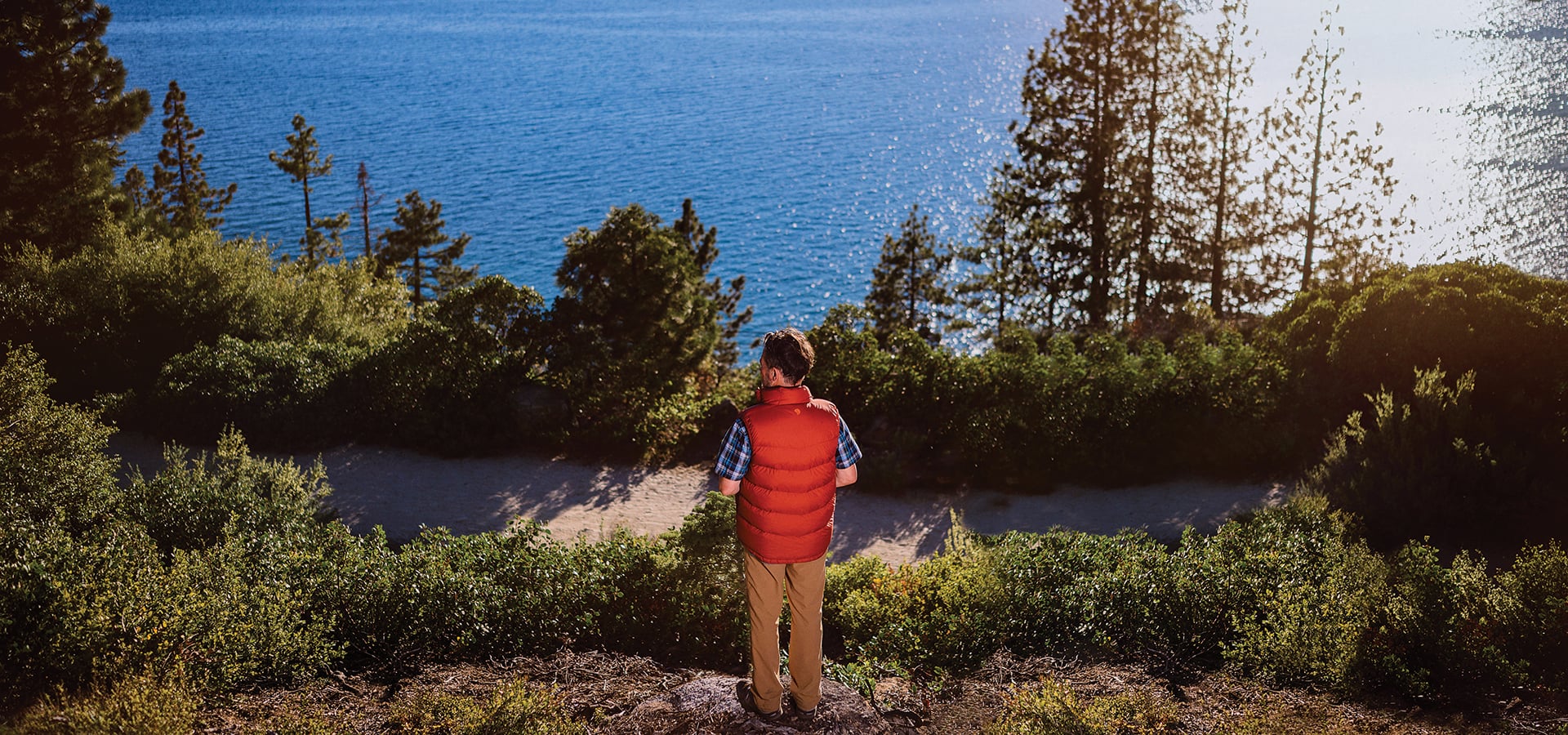
ADVENTURE IN PLACE
Eddie’s body is his temple, his trade and his resume in human form. He has two metal knees from replacements due to exceptional wear and tear. A scar on his right leg was acquired taking a bullet in Italy, albeit by accident.
At 68 years old, Eddie couldn’t “give a shit” about his age. When it comes to health and wellness, his days in the era of COVID-19 are the same as any other, with a consistent routine that keeps his mind and body firing all cylinders irrespective of his current altitude.
Consistency is the name of the game, including a 4 a.m. wake-up call and an aggressive workout. This is followed by plenty of caffeine-inspired inspiration and his sole addiction, yerba maté, made from the naturally caffeinated leaves of a native species of holly tree found deep in the South American Atlantic Forest.
“As I have gotten older, I have had to learn how to work out in a way that is best for my body,” he shares. “TrueCoach is my daily go-to app, used professionally by a former client turned friend of mine. Dylan Staniec has a style and strength and program all his own. I will never miss a day.”
Like many in the adventure business, Eddie is staying mentally and physically ready at home—his beloved Tahoe—while setting his sights on 2021. With embracing change embedded deep in his nature and DNA, the idea of retreating during the pandemic is unimaginable.
“The COVID-19 situation is an opportunity to look at life and events and my business and everything I’m doing through a different lens,” he reasons. “I like that kind of shake-up; I find it exciting and inspiring, and it drives me forward.”
Eddie has a keen sense of what he is offering through his business, and he knows that his knowledge and abilities are ultimately what sell his product. He has always packaged fresh, modern-day adventures. He’s believable and credible, and that is why avid explorers around the world will follow him anywhere.
“Keeping Tusker Trail nimble and fluid has always been key,” he says. “Turning the business on a dime was something that I learned from other leaders I respect and have sought out, as well as to maintain a levelheaded view through periods of stress.”
When the COVID-19 dust settles, Eddie and Tusker Trail will certainly return to Kilimanjaro. Until then, there are utterly stunning treks and adventures ready and waiting for clients just a short drive away. That means building new trips for the firm’s primary clientele—Americans and Canadians—that don’t involve air travel.
Eddie shares, “As a company, our focus is a hard and fast shift to trekking. We’ve been looking at the Southwest pretty heavily—creating long, strenuous, trekking trips through the Rocky Mountains into Canada. This is a project I’ve wanted to develop for a long time, and now is our chance. I’m really excited about it.”
In addition to new trips, Eddie firmly believes that the success of his company should also be measured by the amount of good it does in the community. So you can expect to see Tusker Trail supporting more and varied worthy causes in the future.
“During such unprecedented times, I have no reason to doubt our business is going to suffer; yet adversity can create breakout moments that are truly unique and will lead to our development and growth. I find times like these to be all about character,” shares Eddie. “At times when the world seems to grow darker, why not be reborn in the dark and be that light at the end of the tunnel?”
Only good can come of it.
12 Golden Gifts for the California Enthusiast in Your Life
Ceramics, candles and cannabis to melt your winter blues.
Why Other States Will Follow California’s Lead on 100% Clean Energy by Mid Century
The nation, and the world, views the Golden State as the environmental frontrunner.
One Man’s Journey From Los Angeles to Tijuana in a Kayak
When Andrew Szabo, a 46-year-old Manhattan Beach entrepreneur, told his wife that his midlife crisis involved the purchase of an ocean kayak and the desire to paddle from MB to Tijuana, her reaction was simple: “Have a good trip, and make sure your life insurance premiums are paid.” What followed were three months of intense preparations, a life-changing journey and becoming part of the global battle to raise awareness for tuna overfishing.
Get the Latest Stories
